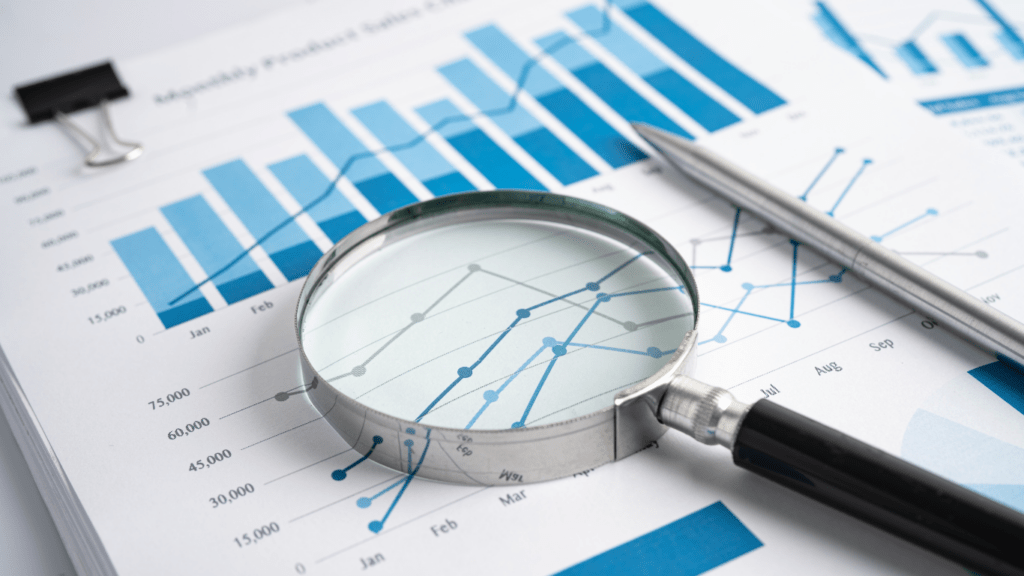I’ve always been fascinated by how technology reshapes traditional industries, and the world of betting is no exception. Big data, with its vast troves of information, is revolutionizing how betting odds are calculated and market predictions are made.
It’s not just about gut feelings and hunches anymore; data-driven insights are taking center stage. In this digital age, bookmakers and analysts harness big data to gain a competitive edge. By analyzing patterns, trends, and vast datasets, they’re able to predict outcomes with greater accuracy than ever before.
It’s intriguing to see how algorithms and data analytics are transforming an industry that once relied heavily on intuition. As I delve deeper into this topic, I uncover how big data not only influences betting odds but also reshapes the entire landscape of market predictions.
It’s a thrilling journey into the intersection of technology and tradition, where data reigns supreme.
Understanding Big Data in Betting
Big data is transforming how betting odds are calculated and market predictions are made. This data-driven revolution has reshaped the betting landscape, replacing intuition with analytics.
Definition and Scope
Big data in betting involves aggregating large volumes of structured and unstructured data. It includes information from historical game results, player statistics, weather conditions, and real-time social media feeds. These datasets allow for complex analyses that inform odds makers and market analysts. By using predictive modeling and machine learning techniques, patterns and trends can be identified, offering a more accurate reflection of potential outcomes.
Key Players in the Industry
Several key players leverage big data analytics to gain a competitive edge. Bookmakers like Bet365 use proprietary algorithms to adjust betting lines based on incoming data. Sports analytics companies like Sportradar provide data services to improve decision-making processes.
Additionally, tech giants like IBM and Google offer cloud-based solutions that handle vast amounts of information for real-time insights. These entities collaboratively enhance the precision of odds and market predictions, making the betting industry more data-centric.
The Role of Big Data in Setting Betting Odds
Big data significantly impacts how betting odds are determined. Utilizing vast data sources and advanced algorithms, odds makers improve accuracy and leverage predictive models to shape more reliable market predictions.
Data Sources and Analytics
Structured and unstructured data sources contribute to setting betting odds. Historical game results, player statistics, and real-time data from platforms like social media are common inputs. Data is gathered rapidly and analyzed to identify trends and influencing factors.
For example, bookmakers use extensive game statistics combined with live data feeds to assess team performances and future match outcomes more effectively.
Algorithms and Predictive Models
Algorithms are the backbone of transforming big data into actionable insights. Incorporating machine learning, these algorithms assess patterns and potential outcomes, refining the odds. Predictive models simulate countless scenarios to determine probabilities with higher precision.
Bookmakers like Bet365 employ these sophisticated models to stay competitive by adjusting odds in real-time based on evolving data landscapes.
Impact on Market Predictions
Big data significantly enhances market predictions in the betting industry by providing detailed analyses and trends. Data processing and historical data analysis are pivotal in shaping these forecasts.
Real-Time Data Processing
- Instant Adjustments: Real-time data processing enables bookmakers like Bet365 to rapidly analyze live data feeds from games and events, allowing for immediate updates to betting odds as new information emerges.
-
Enhanced Predictions: Incorporating social media trends and player performance metrics provides timely context, while advanced algorithms process this data quickly, improving the accuracy of shifts in betting odds.
Historical Data Analysis
Historical data analysis uncovers patterns that informs future market predictions. By examining previous games, player statistics, and event outcomes, I understand how algorithms identify trends that affect predictions.
Betting companies analyze vast historical datasets to predict future performance, considering factors like team form and player injuries. This data forms the foundation of machine learning models, which improve over time, refining prediction accuracy. Long-term data analysis enables better forecasting, thus empowering betting firms to make informed decisions with greater confidence.
Advantages of Big Data for Bettors
Big data is revolutionizing the betting world, offering bettors enhanced accuracy and strategic advantages. These benefits are reshaping traditional betting methods.
Improved Accuracy
Bettors gain from big data’s ability to boost accuracy in predictions. Algorithms analyze comprehensive data sets, including player statistics and game conditions, to refine odds. This real-time analysis reduces reliance on intuition and provides an evidence-based framework for decision-making.
For example, integrating social media trends helps detect unexpected variables influencing game outcomes. By accessing these data-driven insights, bettors make more informed predictions, increasing their chances of success.
Enhanced Betting Strategies
Big data empowers bettors to craft sophisticated strategies by identifying patterns and trends. Historical data and machine learning reveal insights that inform betting strategies. These analyses uncover player performance trends and environmental factors that affect outcomes.
Practically, bettors can tailor their approaches to specific sports or events, capitalizing on unique opportunities identified through data analysis. This strategic personalization fosters a competitive edge, enhancing the probability of favorable results for bettors who adeptly leverage big data tools.
Challenges and Risks
Big data’s integration into betting odds and market predictions presents notable challenges and risks. These factors can have profound implications for both industry stakeholders and bettors.
Data Privacy Concerns
Handling vast datasets introduces significant data privacy challenges. Bettors’ personal information like payment details and betting history can be sensitive. Without stringent data protection measures, there is an increased risk of breaches or misuse.
Big data analytics platforms, often used by firms like Bet365 and Sportradar, require strict compliance with privacy regulations such as GDPR. Ensuring data security while maintaining the analytical capabilities poses a balancing act for companies.
Over-reliance on Technology
While big data enhances decision-making, an over-reliance on technology could lead to potential pitfalls. Algorithms may not always accurately predict outcomes without the nuance of human judgment.
Anomalies or unprecedented events can disrupt even the most sophisticated models, resulting in inaccurate odds or predictions. Although data-driven insights are powerful, integrating expert analysis remains crucial to accommodate factors algorithms might miss. Betting firms must carefully balance technology with traditional expertise to maintain accuracy and reliability.
Future Trends in Big Data and Betting
Big data’s influence in betting continues to grow, driven by emerging technologies and evolving regulatory landscapes.
Emerging Technologies
Several emerging technologies are transforming how big data is used in betting. Artificial Intelligence (AI) and machine learning enhance predictive models by analyzing complex datasets more efficiently than ever.
Quantum computing, though still in its infancy, promises to process vast amounts of data at unprecedented speeds. Blockchain technology offers transparency and security, crucial for maintaining data integrity. Internet of Things (IoT) devices provide real-time data input, such as player biometrics, which could further refine odds calculations.
Regulatory Developments
Regulatory frameworks are adapting to address big data’s impact on the betting industry. Authorities worldwide, like the UK Gambling Commission, enforce stringent data protection laws to safeguard consumer privacy.
In the US, state-level regulations vary, but trends suggest increased oversight on data usage in sports betting. Compliance with General Data Protection Regulation (GDPR) remains critical for firms operating in Europe. These developments necessitate that betting companies not only adhere to legal requirements but also adopt robust data governance strategies to align with emerging standards.


 Elijah Westacott played a pivotal role in the development of Bounce Casino Ball, contributing his technical expertise and innovative ideas to shape the platform. His deep understanding of the casino industry and commitment to enhancing user experience helped create a site that delivers both valuable information and seamless functionality. Elijah’s efforts have been crucial in ensuring that the platform remains up-to-date with the latest trends and provides an engaging experience for casino enthusiasts.
Elijah Westacott played a pivotal role in the development of Bounce Casino Ball, contributing his technical expertise and innovative ideas to shape the platform. His deep understanding of the casino industry and commitment to enhancing user experience helped create a site that delivers both valuable information and seamless functionality. Elijah’s efforts have been crucial in ensuring that the platform remains up-to-date with the latest trends and provides an engaging experience for casino enthusiasts.